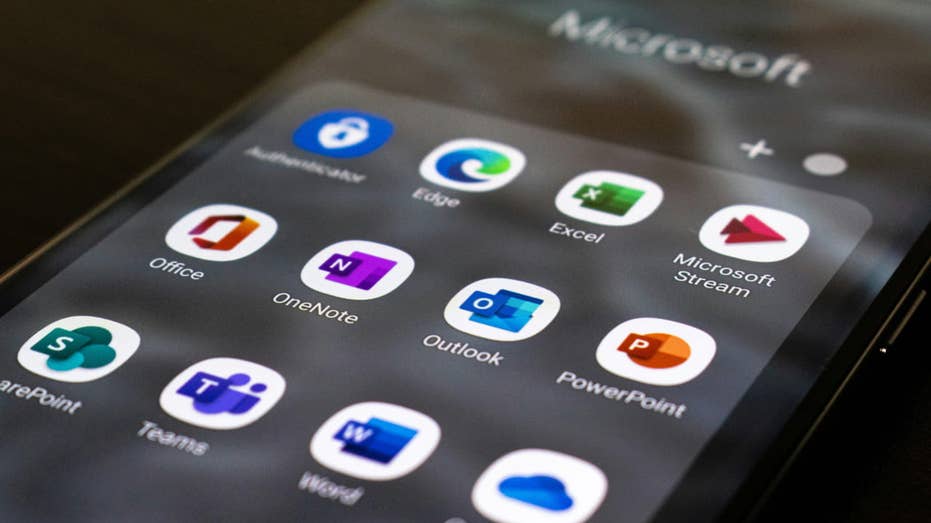- by foxnews
- 05 Apr 2025
Microsoft Teams is becoming a prime target for sophisticated scammers
Tech expert Kurt "CyberGuy" Knutsson says hackers are using Microsoft Teams for phishing, vishing and quishing via social engineering.
- by foxnews
- 11 Feb 2025
- in technology

If there is one corporation that is targeted by scammers more than anyone else, it is Microsoft. From customer support scams to impersonation and phishing attacks, the company's services are constantly under threat. Recently, even Russia-sponsored hackers managed to breach Microsoft and steal sensitive information.
Hackers also insert malware-laden files into chat threads, tricking users into downloading DLL files that enable system takeover. Phishing campaigns leverage compromised accounts or domains to send deceptive invitations, luring victims into downloading harmful files.
Some attackers use email bombing and vishing, posing as tech support to overwhelm users with spam emails before tricking them into granting remote access. Compromised email addresses and stolen Microsoft 365 credentials provide another entry point for unauthorized access.
Plus, external access settings in Microsoft Teams, which often allow outside users to initiate chats or meetings, can be exploited if not properly restricted. Another common tactic is sending phishing links through Teams chats, often disguised as invoices or payment notifications, leading to ransomware infections.
It usually starts with an email about a job followed by a suggestion to do the interview over Teams. The first red flag is that the entire interview happens over chat with no video and no call. After that, you are "hired" and asked to submit your details, often through a Google Doc requesting personal info like your social security or tax number. Some victims are even asked to buy equipment for the job, pay a hiring fee or purchase gift cards, which are classic signs that the whole thing is a scam.
1) Avoid opening suspicious links and attachments: Be cautious of unsolicited links or attachments, especially in chat messages or emails. Cybercriminals often use these to deliver malware or phishing links. Never click on links that seem unusual or come from unknown sources.
2) Check for red flags in job offers: If you receive a job offer that seems too good to be true or involves an interview conducted entirely via chat with no phone call or video meeting, it's likely a scam. Legitimate companies typically conduct interviews using multiple forms of communication.
A job offer that insists on only text-based conversations is a major red flag. Other warning signs include being asked to provide personal information through Google Docs, being asked to pay for equipment, paying fees to secure the job or purchasing gift cards as part of the hiring process.
4) Be cautious with personal information: Never share sensitive personal details, like social security numbers or tax information, through unsecured or unsolicited channels, such as Google Docs or messages on Teams. Always verify the legitimacy of such requests.
5) Report suspicious activity: If you notice any suspicious activity on your Microsoft Teams account or receive unusual job offers, report it immediately. Prompt action can prevent a potential breach or further compromise. Notify your IT department or relevant authorities so they can investigate and take appropriate measures.
6) Verify IT support requests: Be cautious of unsolicited messages or calls claiming to be from IT support, especially those asking you to install software or grant remote access. Cybercriminals often impersonate IT staff to deploy ransomware or steal sensitive data. Always verify such requests with your actual IT department before taking any action. If in doubt, contact your IT team directly using official channels, not through the message or call you received.
Scammers and hackers are not slowing down, so staying sharp is the only way to stay ahead. If something feels off, like a job that sounds too good to be true, a random Teams message with a sketchy link or an interview that is just a chat, trust your instincts. You should always be careful with external messages and invites that you to receive on Microsoft Teams. Even if it seems like it is from someone you know, it is best to double-check, especially if it involves a file, a link or an invitation to a chat you were not expecting to receive.
Follow Kurt on his social channels:
Answers to the most asked CyberGuy questions:
New from Kurt:
Copyright 2025 CyberGuy.com. All rights reserved.
- by foxnews
- descember 09, 2016
Excavation near site where Jesus was crucified and buried results in ancient discovery
Proof of ancient olive trees and grapevines, consistent with a Bible verse, has been found at the Church of the Holy Sepulchre in Jerusalem, an archaeologist confirms.
read more





